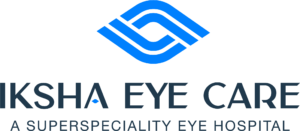
When it comes to cataract surgery, understanding what to expect during the consultation is crucial. This initial appointment allows you to discuss your concerns, ask questions, and gather necessary information. In this blog, we will delve into the key aspects of a cataract surgery consultation and help you prepare for this important step towards regaining a clear vision.
Cataract surgery is a common procedure that involves removing the cloudy lens of the eye and replacing it with an artificial intraocular lens (IOL). Before scheduling your surgery, your ophthalmologist will conduct a comprehensive consultation to assess your eye health, determine the severity of the cataract, and discuss your options.
Here’s what you can expect during your cataract surgery consultation:
- Eye Examination:

The ophthalmologist will begin the consultation by performing a comprehensive eye examination. This may include a visual acuity test, a measurement of intraocular pressure, and a detailed assessment of your eye’s structure and health. These evaluations help your doctor understand the extent of the cataract and any other existing eye conditions that may impact the surgery or recovery process.

- Medical history record:
The Ophthalmologist will ask you about your medical history during the consultation, including any past eye operations, current medical problems, allergies, and drugs you are taking. To provide the safest and most productive surgical experience, it is crucial to submit accurate and comprehensive information.
- Understanding the Pros & Cons:
Ophthalmologists will take the time to go through the pros, cons, and techniques of cataract surgery. They will go through the many kinds of intraocular lenses that are available and assist you in selecting the one that best meets your eyesight requirements. To make sure you are knowledgeable and at ease with the impending treatment, you will have the chance to ask questions and address any concerns you might have.
Before cataract surgery, your ophthalmologist will provide specific instructions to prepare you for the procedure. These instructions may include dietary restrictions, discontinuation of certain medications, and guidelines for eye drop usage. You may also be advised to arrange transportation for the day of surgery, as your vision may be temporarily affected.
- Cataract Surgery Consultation:

Your cataract surgery consultation is an essential step towards achieving clearer vision. By understanding what to expect during this appointment, you can actively participate in the decision-making process and prepare yourself for a successful surgery. Remember to ask questions, share any concerns, and follow the guidance provided by your ophthalmologist. Together, you and your doctor can pave the way for improved vision and a brighter future.
- Understanding the Anaesthesia options:
During your cataract surgery consultation, you can also expect to discuss the different types of anesthesia options available. Your ophthalmologist will explain whether you will receive local anesthesia to numb the eye or general anesthesia to put you to sleep during the procedure. They will consider factors such as your overall health, personal preferences, and the complexity of your case to determine the most suitable anesthesia approach.
In addition to discussing the surgical process, your ophthalmologist will address the potential risks and complications associated with cataract surgery.
- While the procedure is generally safe and successful, it’s important to be aware of possible side effects such as infection, bleeding, or swelling.
- Your doctor will provide detailed information about these risks, as well as the measures they take to minimize them.
- If you have any specific lifestyle or visual goals, such as reducing dependency on glasses or correcting astigmatism, your consultation is the perfect opportunity to discuss these with your ophthalmologist.
- They can guide you through the available options, such as choosing a specific type of intraocular lens that can address your specific needs.
Lastly, your cataract surgery consultation will typically involve discussing the recovery process. Your ophthalmologist will explain what to expect in terms of post-operative care, including the use of prescribed eye drops, the need to wear a protective eye shield, and any activity restrictions during the initial healing period. They will also provide an estimated timeline for when you can expect to resume normal activities and achieve optimal visual outcomes.
Remember, your cataract surgery consultation is a valuable chance to establish a good rapport with your ophthalmologist and ensure that you have a clear understanding of the procedure. Take this opportunity to voice any concerns, clarify doubts, and gather all the necessary information. By actively participating in the consultation, you can make informed decisions about your eye health and contribute to a successful cataract surgery experience.




